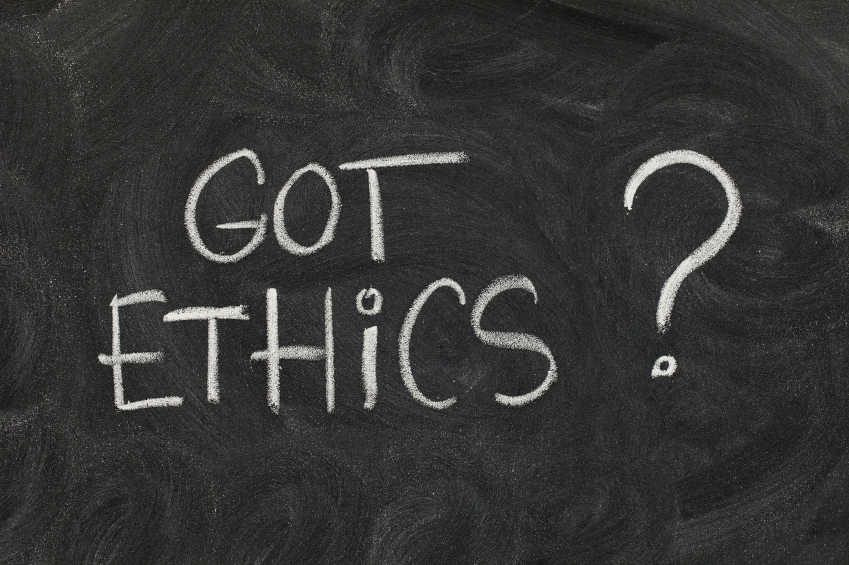“I didn’t arrange that,” Peter Hitchens blushes. A stranger has just told him of her appreciation for everything he stands for and, for once, he’s been caught off guard, disarmed by praise. The stone wall of rhetoric, dogmatic conviction and obduracy against which I’ve been fighting an attritional struggle for the past hour is felled in an instant. And I can’t help feeling relieved.
We’re in Starbucks showing our solidarity with their tax avoidance – well, Hitchens is. “I’m a very bad interviewer,” he opens, slipping into the rich baritone of the ‘Hitchens’ voice that so melodiously beguiles and bewitches, “partly because I’m usually more interested in myself than the other person.” And he has reason to be. After all, Peter Hitchens is a hell of a lot more interesting than most other people; I’ll give him that. Columnist and blogger for The Mail on Sunday, author of five books on drugs and God, crime and politics, reporter from more countries than you can count on two hands – it’s a CV that would dwarf most.
But, if you’ll believe him, no one’s taking him seriously. Never mind, though: the fact that they aren’t will hardly matter soon enough. Indeed, the world as we know it is preparing for its final curtain call. This is the end of civilisation according to Peter Hitchens.
Characteristically, Hitchens has been one of the more outspoken commentators on the recent Sandy Hook massacre that has reignited the debate on gun laws in the US. “People don’t think about anything most of the time,” he notes about the arguments against gun ownership in the wake of the Sandy Hook massacre, “It’s just intellectually moronic to close your mind to the possibility that something other than guns are at issue.” He’s thought, he’s decided, and I’m not about to change his mind: “I’m bored by this subject. If someone produced a gun in here I’d be as scared as the next man – probably more so because I’ve seen what happens when a bullet passes through a human body. It’s not nice, I’m not in favour of it.”
Hitchens rests his arm over the railing next to our table, as he attempts to deconstruct the myths of gun control. To him, the reasoning is unsound. Indeed, until 1920, he maintains, the UK’s very own gun laws “were so lax they made Texas look effeminate.” And what about the rarely reported knife massacres in China? Guns aren’t the only things capable of causing havoc, he argues. “This problem of increasingly frequent gun massacres is new,” Hitchens goes on, “It’s not something that’s been going on during the entire period that the United States has had relaxed gun laws. In fact, its gun laws have become increasingly restrictive over the past 30 or 40 years.” His tone is such that it almost caresses me into submission. Almost. But I’m not convinced. Fifteen of the 25 biggest mass shootings worldwide in the last half-century have taken place in the US, a country with double the number of guns per person compared with somewhere like Yemen. Hardly coincidental, I might suggest.
“It’s theoretically arguable that the existence of law-abiding gun owners in places where people start shooting provides some protection,” Hitchens digresses as I inwardly cringe, noticing the tell-tale signs of the strand of thought with which he’s aligning himself – the NRA honchos and their ‘more guns, fewer shootings’ claptrap. For someone who prides himself on logic being his weapon of choice, this doesn’t seem awfully logical to me. “Take the Anders Breivik incident,” he explains, “Had there been anybody on that island in possession of a legally owned gun, a law-abiding sane person, they could have dropped him from 300 paces, and that would have been the end of that. Good thing, no?” Well, yes… provided that you haven’t taken into account how many more Anders Breiviks might crop up if guns were readily available.
Yet still his claim is that the problem lies elsewhere: “It’s a case of the old saying,” he recalls, “‘When the wise man points at the moon, the fool looks at the finger.’” Focusing on guns is a lame distraction. In the world according to Hitchens, we’d bite the bullet and scrutinise “a scandal as big as thalidomide” much more closely. Most of these shootings, he’s convinced, have involved anti-depressants or illegal drugs (and sometimes both). However, “the reason we don’t look there is because it’s fashionable to be against guns and it’s fashionable to be in favour of anti-depressants and marijuana.” Hitchens takes a gulp of his coffee and shakes his head irately: “Fashion shouldn’t govern thought.” I couldn’t agree more – but contrariness is fashionable too, I think to myself.
“The anti-depressant scandal is so huge,” and he’s cross with the failure of his trade to report it. Hitchens carefully explains to me that it’s a “known fact” that the pills induce “suicidality, a tendency to feel suicidal,” but that nobody seems to care: “If people were constantly dying of a physical disease after having taken a pill that was supposed to cure them, the suspicion would be thrown on the efficacy of that pill.” But self-interest shuts the door to examination – on the part of “an awful lot of people in the media” who are taking these drugs, the “huge number of doctors” who prescribe them “out of laziness and a desire to get rid of patients,” and the pharmaceutical companies whose profits keep on soaring.
Hitchens fidgets in his chair slightly, before candidly admitting: “My engagement with the argument about drugs is purely to point out that everybody is talking balls. I don’t have the slightest illusion that anything I say is going to make a difference.” It’s the first sign of Hitchens’ distaste for the modern world – and its distaste for him. “It’s coming, it will come,” he prophesies, “If you’ve read Brave New World, soma [the hallucinogenic consumed ubiquitously in Huxley’s novel] is on its way.” Illegal drugs, according to Hitchens, have been systematically decriminalised in recent decades by the UK. He rubbishes my suggestion that Portugal has seen notable successes since decriminalising possession of all drugs in 2001, regarding the Cato Institute’s conclusions as self-serving: “The evidence is that they had an agenda. Besides, Portugal hasn’t decriminalised to anything like the extent that Britain has,” he explains, swooping up his coffee mug and leaning back once more.
Regulation of the drug market is a cowardly kowtow to the “stupid people that take them,” Hitchens believes. But what about the tens of thousands of preventable deaths in Mexico, or the Taliban-swelling destruction of Afghanistan’s poppy fields (the only crop that yields its farmers any sort of livelihood)? “Well, they’re caused by the selfish cretins who encourage the trade. They’re on their conscience.” He disputes the idea that decriminalisation would, in one fell swoop, eradicate (or at the very least, significantly reduce) the nefarious effects of just these two examples. The way I see it, prohibition has been ineffective – it’s changed nothing but the girth of the criminal underbelly. Peter Hitchens has no time for such arguments, though – indeed, his writings deny the very existence of a policy of ‘prohibition’ in the UK – and he’s not afraid to show his impatience with them: “Oh it’s pathetic, sub-intellectual drivel! Any thinking person would easily see through it if they were given half a chance, but it’s fed to them as truth,” he complains.
Lazy thinking is a bugbear of Hitchens’, not least when it comes to God. Which is why I’m a touch surprised that he appears jaded by the conversation when I bring it up: “I’m reduced to repeating things I’ve said over and over again,” he sighs, “It’s a matter of saying that either this is a created universe, and it is therefore the product of a mind in which we live and move and have a purpose that is discoverable, or it’s a meaningless chaos in which nothing we do has any significance.” Life without faith, for him, is necessarily devoid of meaning and happiness: “You live, you die, it’s over. There’s no justice, there’s no hope, those who are dead are gone and we have no souls. Why would you want that?” The trouble is that Hitchens’ argument smacks of teleology, even though it’s dressed up as rationalism – he wants there to be a meaning, a narrative he can follow with his finger down a page, a universal and unalterable understanding that is discoverable. Therefore God exists. Persuaded?
Above all, what religion gives Peter Hitchens is justice and morality. “I don’t care whether you need him or not,” he expounds in pugnacious style, “Human justice, as we know, is a completely fallible thing. Yet we all desire justice – I bet you do. If it isn’t happening in the temporal sphere, there’s only one sphere in which it can take place: the eternal.” Hitchens believes that a world without religion would substitute morals for ethics. And we’d be poorer for it: “Ethical codes change all the time. What’s more, they usually change to suit powerful people who need them to. But God does not change; justice does not alter.” My mind wanders momentarily, and I wonder whether he would agree that Henry VIII’s divorce proceedings – on which Hitchens’ Anglicanism was founded – constituted precisely the kind of change to the Church’s morality (at the behest of a very powerful person indeed) that he’s disparaging in the secular world.
There’s no doubt in his mind, though, that the Church of England is in decline. According to census figures, the percentage of UK citizens classifying themselves as Christian nosedived by 12.4 per cent between 2001 and 2011. “Christianity has more or less talked itself out of existence,” Hitchens acknowledges, “It lacks confidence and in many cases is espoused and headed by people who don’t really believe in it anyway.” It’s a depressing indictment of his own dearly held faith. “This will be an Islamic country in 60 or 70 years’ time, I think,” he continues, resting his hands lightly on the table, “When the fundamental religions of modern life – namely, uninterrupted economic growth and an endlessly expanding welfare state – have proved to be false, which they are doing as we speak, there will be a religious revival in the Western countries and Islam is very well placed to take advantage of it.”
A distinct sense of resignation penetrates nearly everything Hitchens says. He appears to see himself as a modern-day Cassandra, shouting truth into the wind whilst everybody else’s back is turned. There’s a certain earnestness in his voice when he laments that he has “absolutely no influence over the politics of this country. Maybe you do,” he offers. “The existing political system is incredibly intolerant of dissent. And it keeps me out,” he notes as though he’s living in 1984, but still he keeps fighting his corner, “I’m treated as a sort of licensed lunatic. Nobody reads my books; nobody listens to anything I say. All I can say is that I’ve tried.”
And just when I think we’ve reached the nadir of this conversation, he hits back with a sucker punch: “The jig is up, the country’s finished, Western civilisation’s over. It’ll be the Chinese writing the history of this place.” His advice? Emigrate: “If I were you, I’d leave tomorrow. But I’m too old, I couldn’t make a living abroad now. I’m stuck.” He tells me how he’d board the first plane to Canada, because “it’s a sensible, well-governed place and its people have a good sense of humour.” But that does nothing to take away the sour taste of his doom and gloom end of days story. “We’re watching the end of an ancient and once rather wonderful civilisation,” he meditates wistfully, “You’re watching the end of it. It’s how these things go – neither with a bang nor with a whimper, but with the country sinking giggling into the sea.”
At length, we get up to leave. Maybe it was something in the coffee, but I felt sure I’d walked into Starbucks feeling about five feet taller than I did now. We shake hands, and I watch as he flings a scarf over his shoulder and strolls back to another day at the office, another day in the world of Peter Hitchens. It’s all well and good, but the trouble is that I’m not quite sure the world that Hitchens thinks he lives in really exists. At least, I hope it doesn’t.


